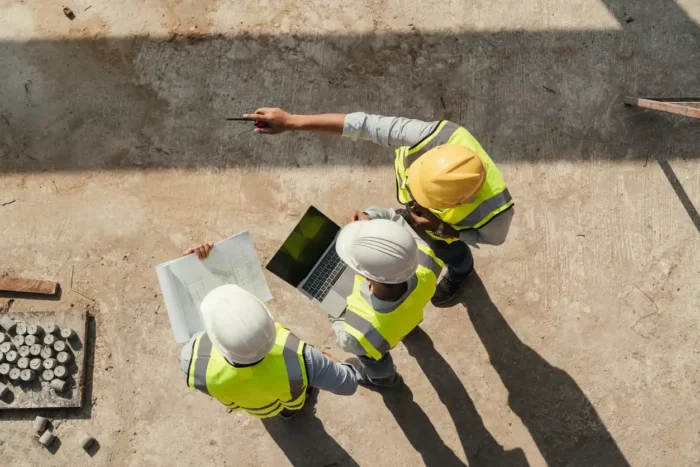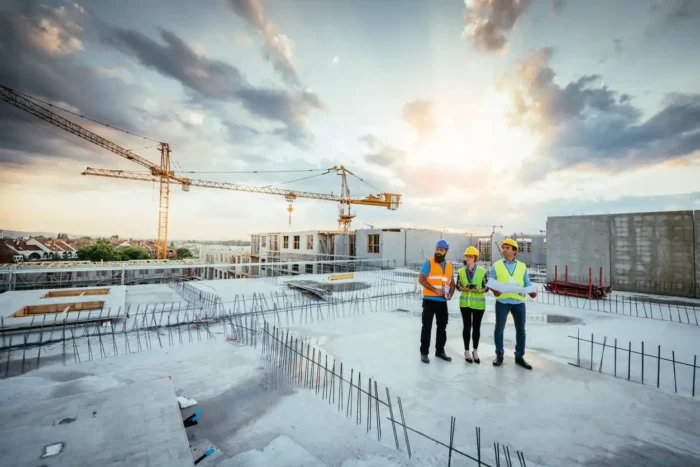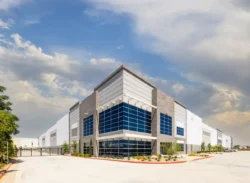How to Find the Right Commercial Property Builder
Published
September 10, 2025
Published
September 10, 2025

If you’ve ever thought about buying a block of land or knocking down an old commercial site to start fresh, one of the first questions you’ll face is: who’s going to build it?
Picking the right commercial builder is not just about price. It’s about finding a team that understands your project, your budget and how the type of property you want to create will actually work in the real world.
Below, we’ll walk through what to look for in a builder, the factors that shift depending on the type of property you’re planning, how to get your head around costs and whether building from scratch even makes sense—or whether investing in existing property might be the smarter path.
What to Look for in a Commercial Builder
Not all builders are created equal. Residential construction is one world and commercial construction another.
Here are some of the top things you’ll want to weigh up when searching for a builder:
Experience in Your Asset Class
A builder who has put up half a dozen warehouses may not be the right choice for a retail strip or an office block. Each asset class has its own requirements, and you want someone who already knows the potential pitfalls.
A builder with experience in your chosen property type will understand what tenants look for, what compliance issues come up, and how to design for efficiency. Without that background, you risk paying for a build that doesn’t quite suit its purpose or fails to attract the right tenants.
Local Knowledge
Every council has its quirks when it comes to approvals, permits, and building codes. A builder who has worked in your local area (or at least in your state) can save you time and headaches. They’ll know what paperwork is likely to be flagged, which consultants need to be engaged, and how long approval processes really take.
That inside knowledge can help you avoid costly delays and keep the project on track from the start.
Transparency on Costs
You don’t want vague estimates. A good builder will provide detailed quotes that break down labour, materials, permits, and potential contingencies. Clear costings give you confidence about where your money is going and allow you to plan for the unexpected.
If a builder avoids providing detail or only offers broad ballpark figures, that’s a red flag—it usually means hidden extras or price blowouts down the line.
Communication and Project Management
Commercial builds have many moving parts—surveyors, engineers, subcontractors, and compliance requirements. You’ll want a builder with a clear system for managing timelines and keeping you in the loop.
Regular progress updates, clear documentation, and a single point of contact can make the whole process far less stressful. Strong project management skills are often what separates a seamless build from one that drags on months past its due date.
Reputation
Testimonials and past projects speak volumes. A builder with a solid reputation will have a portfolio you can check and clients willing to vouch for them. This doesn’t just confirm quality—it shows they consistently deliver on time and on budget.
Renowned and trustworthy builders put their work front and centre so you can judge the quality for yourself, and that openness is a good sign that they stand by their results.
Matching the Builder to Your Project

The type of commercial property you’re planning will have a big impact on the builder you choose. Each category comes with its own quirks.
Retail
Retail spaces need to be attractive, functional, and customer-friendly. Builders need to understand traffic flow, accessibility, and council requirements around parking. Look for a builder who has worked on fit-for-purpose retail spaces rather than industrial sheds.
Offices
Offices are all about layout flexibility, natural light, and compliance with modern workplace standards. Builders with experience in creating office spaces will know how to balance functionality with the finishes tenants expect.
Fuel Stations and Quick-Service Retail
These are highly specialised builds. They require strict compliance with safety standards, underground infrastructure, and often, fast turnaround times. A general builder won’t cut it here—you need someone who has handled this niche before.
Industrial
Warehouses and industrial facilities prioritise space efficiency and durability. Costs can often be lower per square metre compared to retail or office builds, but you need a builder who understands things like racking loads, truck access, and concrete strength.
What’s the Cheapest Type of Commercial Property to Build?
Generally speaking, industrial warehouses are among the cheapest to construct. They’re usually large, open-plan spaces with minimal fit-out requirements. Compare that to a retail store or a cafe, which requires higher-end finishes, shopfront design, and amenities that add to the cost.
That doesn’t mean cheaper is better—it depends entirely on what you’re aiming for. A simple warehouse may be cost-effective to build, but it also attracts different tenants and yields than a fully fitted retail or office space.
Estimating the Cost of a Commercial Development
One of the hardest parts for first-timers is wrapping your head around costs. Every site is different, but here’s what typically goes into the price:
- Site preparation
- Permits and approvals
- Core construction
- Fit-out: Depending on use, this could be simple (like open warehouse space) or highly customised (like a medical practice).
- Contingencies: Weather delays, material price increases, or unexpected site issues.
Builders will usually quote on a cost per square metre basis, but remember that figure can shift dramatically depending on the level of finish and the change in market conditions from first quote to final proposal.
Should You Build or Invest in an Existing Property?
Here’s where many people get stuck. You’ve found a block of land or an old site you could knock down. Do you go through the lengthy process of designing and building something brand new—or do you buy into something that’s already producing income?
Building has its appeal. You get full control over the design, tenant type and location. But it also carries higher risk—delays, cost blowouts and the simple reality that you won’t see returns until the project is complete.
That’s why some investors step back and choose to invest in existing commercial properties instead. And for many, property syndication is the sweet spot.
Commercial property syndication (typically through a commercial property investor or unlisted property fund) lets you pool your capital with other investors to access high-quality, income-producing commercial assets without the stress of construction. It’s a way to get exposure to the sector without needing to be a hands-on developer.
There’s almost no benefit to guesswork in commercial real estate
Successful investing is all about the right information. Want to receive more of it, straight to your inbox? Subscribe to our monthly newsletter for expert news, insights, and perspectives on commercial property.
Every article is free and can unsubscribe anytime.






